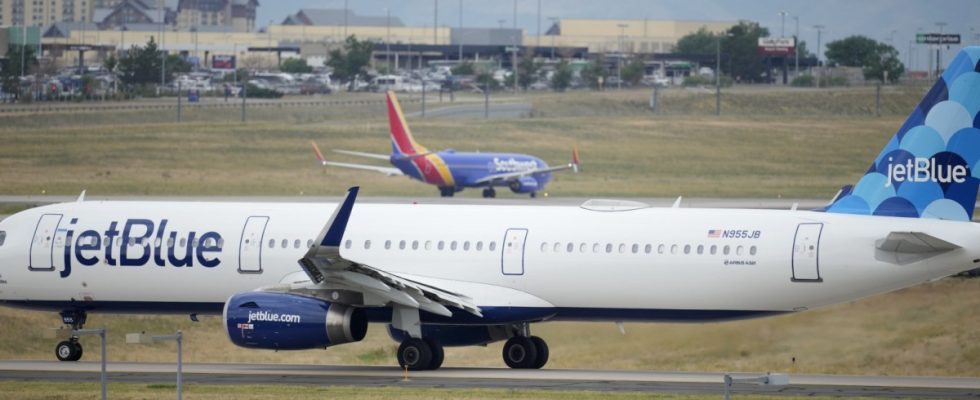On Monday morning, Joanna Geraghty, 51, went to the office of the New York airline Jet Blue Airways for the first time as the new boss. She could already sense that a hellish job awaited her – Jet Blue absolutely had to make profits again after years of losses. But the airline lost market share at important airports, had to give up an alliance with American Airlines and then a court also banned the takeover of the low-cost airline Spirit Airlines, which would have allowed Jet Blue to grow faster. So no easy times and no easy answers in sight.
When Geraghty left her office that evening, it was clear that the job would be much more complicated than she could have imagined. Because: The investment company Icahn Enterprises had just confirmed that it bought 9.9 percent of Jet Blue shares in several tranches about a month ago and would therefore now like to be represented on the board of directors.
What is the background? In the American airline industry, the name Icahn is primarily synonymous with the decline of the famous Trans World Airways (TWA), once the industry’s biggest brand alongside Pan American. But only until Carl Icahn ruined the company.
Carl Icahn, now 87 years old, has been one of the most colorful figures on the American investment scene for many decades. It feels like there is hardly a large company in which he has not been involved at some point and caused stress: US Steel, Texaco, Time Warner, Motorola, Yahoo, Apple, and a number of casinos, especially in the state of Nevada. The multi-billionaire was considered a pioneer of the “corporate raiders” – i.e. investors who exploited their holdings in order to increase their own assets. Donald Trump, whom he supported in the 2016 election campaign, had originally intended Icahn to be Treasury Secretary. Then the job went to Steven Mnuchin. Icahn remained Trump’s advisor for a while – both had known each other for a long time from New York.
Hardly anyone in the industry regretted Icahn’s withdrawal from the aviation industry
Icahn joined TWA in 1985 with union support. But their hopes were dashed. Icahn sold profitable parts of the company – the routes to London went to United Airlines in 1991 for almost half a billion US dollars and despite the proceeds, TWA had to file for bankruptcy in 1991. Icahn left TWA in 1993 after the restructuring, but not without a deal that was fatal for TWA: his travel agency Karabu was allowed to buy and resell TWA airline tickets at a 45 percent discount for ten years. This meant that profits were virtually impossible for the airline, while Icahn’s vehicle thrived. TWA went bankrupt a second time in 1995. In 2001, American Airlines took over the once large airline.
Icahn was no longer involved in an airline for more than 30 years – and given TWA’s history, there is hardly anyone in the industry who regrets that. But now at Jet Blue the opportunity was apparently too good to ignore. The stock had lost 50 percent of its value because the company, under its previous boss Robin Hayes, became hopelessly entangled in plans to take over low-cost provider Spirit for $3.8 billion. Icahn’s usual approach in these cases: buy shares cheaply, put pressure on the board of directors, force a new strategy on management and sell them at a profit at some point.
In the case of Jet Blue, his plan could even work out if Geraghty manages to strengthen the company and make it profitable in its most important markets of New York, Boston and Florida. And who knows, maybe Icahn will like airlines even more and look at other ones too. However, an insider who also knows Icahn says what many are probably thinking: “I just hope he doesn’t try to do what he did at TWA again.”

